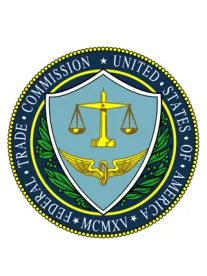U.S. antitrust enforcers continue to seek stiff penalties from companies that commit “gun jumping” by closing certain securities transactions without reporting them to the Federal Trade Commission (FTC) and United States Department of Justice (DOJ), as required under the Hart-Scott-Rodino (HSR) Act.
Under the HSR Act, transactions valued at more than $90 million often must be reported to the FTC and DOJ before the transaction can close. Gun jumping occurs when the parties close without reporting the transaction or fail to abide by the 30-day waiting period applicable to most transactions.
Whether a transaction is reportable is not always obvious, particularly in the case of the conversion of securities. Under 16 C.F.R. § 801.2(d)(1)(i),(2)(i), any person (or entity) that holds new securities as a result of a merger or consolidation is an acquiring person that may be required to make a filing. So, when the voting securities of one firm are converted into the voting securities of another firm as a result of the merger, the conversion may also be reportable depending on the value, and the value of the acquiring and acquired firm.
Last week, the FTC agreed to accept $609,810 from Third Point LLC and three associated investment funds to settle charges for violating the (HSR)Act’s premerger notification and waiting period requirements. In late August 2017, Dow Inc. and E.I. du Pont de Nemours & Company merged, converting the shares held by the three investment funds into shares of the newly formed DowDuPont Inc. This conversion was reportable but Third Point failed to notify the FTC or DOJ until November. Dow and DuPont had informed shareholders in April that they had received HSR clearance and later announced that the merger would close by the end of August. Despite this warning, the three Third Point funds did not make the required HSR filing for the conversion. On top of hefty civil fines, the funds are enjoined from future HSR Act violations caused by similar consolidations.
This is not the first time the FTC has sought civil penalties from an investment fund failing to file a notification required upon conversion. In 2015, Leucadia National Corporation was fined $240,000 for failure to file a notification when its Knight Capital voting securities converted into voting securities of the newly formed KCG Holdings after the merger of Knight Capital and GETCO Holdings Company, LLC.[i]
This action shows a continuing trend of the FTC and DOJ actively enforcing the HSR Act’s rules against gun jumping. In June 2019, Canon Inc. and Toshiba Corporation paid $5 million to settle gunjumping charges.[ii] And in December 2018, an executive, James Dolan, agreed to pay $609,810 in civil penalties when he failed to file a notification before he acquired additional securities in Madison Square Garden Company, causing him to hold an aggregate value of securities beyond the HSR filing threshold.[iii]
This should serve as a warning to investment funds to perform a careful HSR analysis before the conversion of securities to avoid heavy civil fines and injunctions. Companies now face civil fines of up to $42,530 per day for each day they are found in violation of the HSR Act, which includes the 30-day waiting period after a corrective filing is made, and starts on the day the transaction is consummated. Investment funds should enlist the help of experienced antitrust counsel to determine whether a filing is required based on the size of the fund and the value of the securities to be converted. It is also vital to stay abreast of consolidation plans of significant holdings to avoid late filings.
See the FTC Press Release here: Three Third Point Funds Agree to Pay $609,810 in Civil Penalties for Violating the Hart-Scott-Rodino Act
See the FTC Complaint here: Third Point LLC Complaint
[i] See “Leucadia National Corporation to Pay $240,000 to Settle FTC Charges It Violated U.S. Premerger Notification Requirements,” Federal Trade Commission (Sept. 22, 2015), available at https://www.ftc.gov/news-events/press-releases/2015/09/leucadia-national-corporation-pay-240000-settle-ftc-charges-it.
[ii] See “Canon Inc., Toshiba Corporation Agree to Pay $5 Million for Violating Federal Antitrust Laws,” Federal Trade Commission (Jun. 10, 2019), available at https://www.ftc.gov/news-events/press-releases/2019/06/canon-inc-toshiba-corporation-agree-pay-5-million-violating.
[iii] See “FTC Charges Executive Whose Company Owns New York Knicks, New York Rangers with Violations of U.S. Premerger Notification Requirements,” Federal Trade Commission (Dec. 6, 2018), available at https://www.ftc.gov/news-events/press-releases/2018/12/ftc-charges-executive-whose-company-owns-new-york-knicks-new-york.






 />i
/>i
